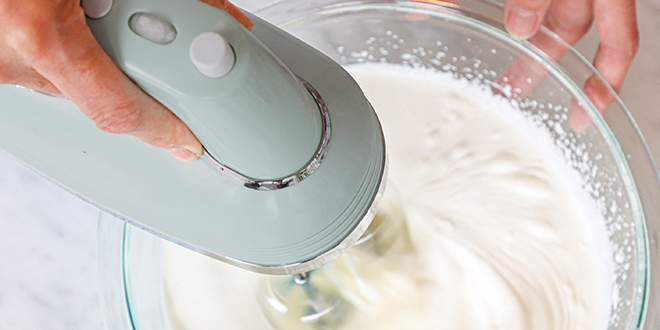New to the debate about AC vs. DC motors? Here’s a good place to start: Most inexpensive kitchen mixers sold in the US run on AC motors, while the commercial mixers used in bakeries and restaurants generally feature DC motors. Does that mean that a home baker doesn’t need a DC-motor mixer? Or that a serious baker should have one?
But first, a little science
Let’s back up a bit. What do AC and DC mean in the first place? Alternating current (AC) and direct current (DC) are the two different types of voltage used for the conduction of electrical energy. On a graph, alternating current looks like it sounds: it moves back and forth in a wave-like pattern. Direct current also looks like it sounds: it’s constant and moves in one direction. Although the current flowing from electrical outlets in homes around the world is alternating current, some electrical appliances—like the computer on which you may be reading this—use both AC and DC.

And now, back to baking
A DC-motor mixer is more powerful than one with an AC motor and tackles hard-to-mix ingredients better. Compared with AC motors, DC motors offer 15% more torque — the rotational force that moves objects around. Because the current is direct rather than alternating, a mixer with a DC motor runs at more consistent speeds. And despite their superior power, mixers with DC motors are also quieter than their AC counterparts.

So who really needs a DC-motor mixer? Bakers who make cookies, bread or large amounts of anything (cake, muffins, frosting, etc.) on a regular basis can save time and effort by using an electric mixer with a DC motor. For the occasional baker, a mixer with an AC motor will do just fine, and AC-motor mixers are also lighter and generally less expensive than DC-motor mixers. But for the avid home baker, or one often working with cookie or bread dough, the best hand mixer is one with a DC motor.

One last note— just because kitchen mixers with DC motors are powerful, don’t worry about using them at home. A power inverter, usually inside the motor housing, converts alternating current from the electrical outlet to direct current that the DC motor can use. No adaptor needed, and no worries. Just more torque for cookie dough, sourdough batter and other hard-to-mix ingredients.




the Website looks very nice and so does the hand mixer
Thank you!